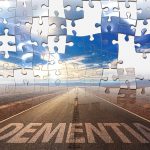
In you, O Lord, do I take refuge; let me never be put to shame!
In your righteousness deliver me and rescue me; incline your ear to me, and save me!
Be to me a rock of refuge, to which I may continually come; you have given the command to save me,
for you are my rock and my fortress.
Psalm 71:1-3 (ESV)
Man has been overcome by plagues of one kind or another since the beginnings of recorded time. Almost all of these, and the ones we know best were infectious in origin. About 5,000 years ago, an epidemic wiped out a prehistoric village in China. Around 430 B.C. an epidemic ravaged the people of Athens and lasted for five years. Some estimates put the death toll as high as 100,000 people. The Byzantine Empire was ravaged by the bubonic plague, which marked the start of its decline. Some estimates suggest that up to 10% of the world’s population died. The Black Death traveled from Asia to Europe. Estimates suggest that it wiped out over half of Europe’s population. In this country yellow fever caused deaths nationwide. The flu pandemic of 1898-1899 killed more than 1 million people worldwide. The polio epidemic of 1916, the Spanish flu and others ravaged our land. In the last 50 years no fewer than 5 major diseases have spread fear and death in their wake, the latest the current pandemic caused by coronavirus.
However, there is another plague at work that is not caused by an infectious disease (as far as we know). Alzheimer’s Disease and a few other causes of dementia are a mushrooming force that threaten our healthcare system as few things in our time, including COVID-19. With advances in healthcare knowledge, we are living on average longer than ever before, so the diseases of aging advance with us. According to the Alzheimer’s Disease Association, over 55 million people worldwide were living with dementia in 2020.
As severe a strain as this is on our healthcare system, it represents a much more poignant and personal burden for the millions of those who are caregivers. There was a time in my career where one could have an academic and philosophic discussion about dementia; however, now this isn’t possible because every one of us, no matter the social strata has personally experienced this pain.
I’ve experienced this as a physician and as a son, caring for my dear mother over her years of fighting this plague. I plan to write more about this, but I want to start with a rather existential question: should we focus our efforts and our resources on finding a cure; or should we aim to find the best ways to care for our loved ones? The answer, of course is both. But I’m afraid we don’t do a very good job with the latter.
Just to scratch the surface, how many of our neighbors are living silently with dementia? The elderly man who recently fell at home. The quiet widow who recently became lost in the neighborhood. The couple who doesn’t seem to come outside anymore.
Jesus answered, “The most important is, ‘Hear, O Israel: The Lord our God, the Lord is one. And you shall love the Lord your God with all your heart and with all your soul and with all your mind and with all your strength.’ The second is this: ‘You shall love your neighbor as yourself.’ There is no other commandment greater than these.”
Matthew 12:29-31
I watch as a dear old friend cares so lovingly for his wife. I hear from another who is burdened with making sense of estates and legal issues for a widowed aunt. How can we, as physicians, as friends, as family care for these caregivers?
Can there be any more important way to love our neighbors? Is this not how we were called? May I suggest that we focus our efforts on loving and caring for our neighbor.


Reading this, January 2,2023
Wonderful history lesson, Michael.
And yes, we must find more humane way to Care for those with Dementia and Alzheimer’s disease. The kindness of caregivers who listen, encourage sharing past experiences rather than corrective aid is most helpful.